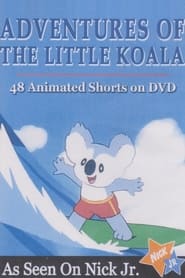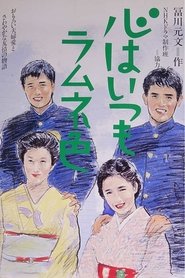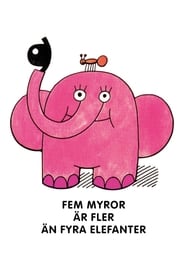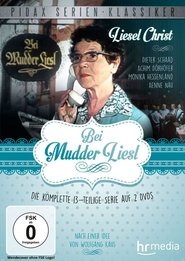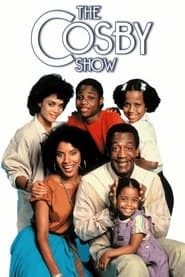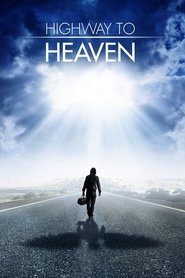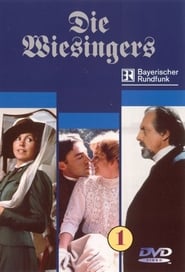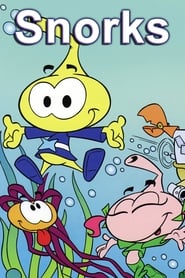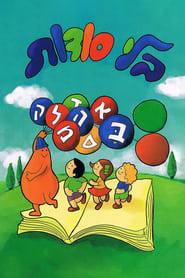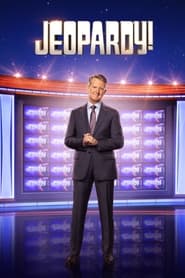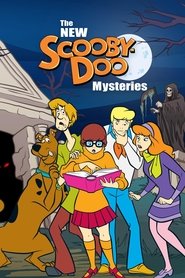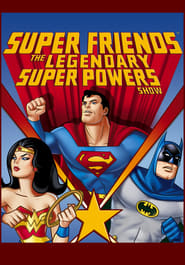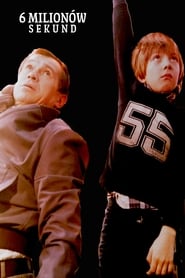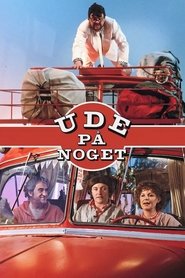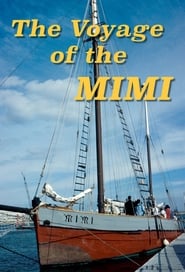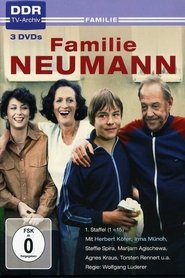New Family TV Series on Tub Tv - Page 409
-
Adventures of the Little Koala
1984
star 5The storyline revolved around Roo-bear Koala and his friends in a utopian village. The series takes place in Australia, with the village being located in the shadow of The Breadknife. Including different types of animal creatures in the daily life of the village was likely meant to demonstrate the virtues of pluralism and diversity. -
Kokoru wa Itsumo Ramune Iro
1984
The 33rd NHK Asadora. Starring Eisaku Shindou as a man who loves manzai (a traditional style of stand-up comedy in Japanese culture). Average rating of 40.2% Based on the life of a famous two-man comedy act writer, Akita Minoru, who loved comedy more than anything. His life itself was full of wit and humor, love and friendship. -
WonderWorks
1984
WonderWorks
1984
Anthology series aimed at children and families. Many of the episodes were based on popular children's and young adult novels. -
Fem myror är fler än fyra elefanter
1984
star 8.2Fem myror är fler än fyra elefanter or Fem myror was a 1973–75 Swedish TV-series for children, hosted by Magnus Härenstam, Brasse Brännström and Eva Remaeus. The TV-series included songs and sketches with education about letters, numbers, positions, etc. Fem myror är fler än fyra elefanter was broadcast first on 19 November 1973 on TV2 by Sveriges Television and it was also broadcast as Julkalendern 27 November –24 December 1977. Fem myror is able to buy on VHS and DVD and there are also PC games. -
Bei Mudder Liesl
1984
Bei Mudder Liesl
1984
-
The Cosby Show
1984
The Cosby Show
1984
star 7The Cosby Show is an American television situation comedy starring Bill Cosby, which aired for eight seasons on NBC from September 20, 1984 until April 30, 1992. The show focuses on the Huxtable family, an upper middle-class African-American family living in Brooklyn, New York. -
Highway to Heaven
1984
Highway to Heaven
1984
star 7.4A probationary angel is sent back to Earth to team up with an ex-cop and help people. -
Die Wiesingers
1984
-
Going Bananas
1984
Going Bananas
1984
star 5Going Bananas is a live-action superhero/comedy series made by Hanna-Barbera and ran from September 15, 1984 to December 1984 on NBC. -
Snorks
1984
Snorks
1984
star 6.3The Snorks is an animated television series produced by Hanna-Barbera which ran on NBC from September 15, 1984, to May 13, 1989. Although not as popular as the animated series The Smurfs, the program continued to be available in syndication from 1986 to 1989 as part of The Funtastic World of Hanna-Barbera's 3rd season, on USA Network in the late-1980s and early-1990s, on the BBC in the late 1990s, and from 2009–2011 and again from 2012–Present on Boomerang. -
White Gipsy
1984
White Gipsy
1984
star 8During the war a child who was left in a village was found by a group of Gypsies. The called the boy Tarun and soon he learned to respect Gypsies customs, learned how to survive, and how to earn for a living by weaving baskets. Other people called him White Gipsy. -
Without Secrets
1984
Without Secrets
1984
Without Secrets, is an educational television show broadcast on Israeli Educational Television during the years 1983–1986 and on reruns during the mid-1990s. The show was intended for lower grades of Elementary, seeking to help with their reading. The show was incorporated as an integral part of the school curriculum and was even accompanied by 10 study booklets and 5 enrichment booklets, published by the 'Center for Educational Technology'. The first-of-its-kind educational television broadcasts intended to teach children to read and would visualize to the viewer the process of reading through songs and sketches led by some well-remembered characters such as Gashash Balash and Itonish. The show's hosts Hanny Nahmias, Oshik Levi, Natan Natanzon, and Hanan Goldblat, and several other actors who'd participated on the show such as Shula Hen, Ofra Haza, Galia Isay, and Mati Sari. Plasticine Animation clips, introducing the characters "Alphy" and "Betty", were also featured. -
Jeopardy!
1984
Jeopardy!
1984
star 6.8America's favorite quiz show where contestants are presented with general knowledge clues in the form of answers, and must phrase their responses in question form. -
The New Scooby-Doo Mysteries
1984
star 8.4Picking up where 'The New Scooby and Scappy Doo Show' left off. The main difference being that the team is now occasionally joined by Daphne Blake and friends to solve mysteries together. -
Super Friends: The Legendary Super Powers Show
1984
star 8Super Friends: The Legendary Super Powers Show is an American animated television series about a team of superheroes which ran from 1984 to 1985 on ABC. It was produced by Hanna-Barbera and is based on the Justice League and associated comic book characters published by DC Comics. -
I comme
1984
I comme
1984
-
Ude på noget
1984
-
The Voyage of the Mimi
1984
star 5.5The Voyage of the Mimi and The Second Voyage of the Mimi are groundbreaking programs created by The Bank Street College of Education. They were among the first multimedia materials to use interactive technologies in an inquiry-based, integrated approach to teaching and learning for the middle grades, with an emphasis on science and mathematics. They consist of video, software, and print materials, including lesson plans, hands-on activities, and student-directed and collaborative projects. The 13 video episodes of The Voyage of the Mimi take students and teachers on a scientific expedition to study whales. The 12 video episodes of The Second Voyage tell the story of archaeologists in search of a lost Mayan city. The videos consist of dramatic episodes paired with a related documentary-style "expeditions." The dramatic episodes present an exciting, reality-based adventure/drama. The expeditions visit real places to witness scientists at work. -
Familie Neumann
1984
 Netflix
Netflix
 Amazon Prime Video
Amazon Prime Video
 Apple iTunes
Apple iTunes
 Apple TV Plus
Apple TV Plus
 Disney Plus
Disney Plus
 Google Play Movies
Google Play Movies
 Paramount Plus
Paramount Plus
 Hulu
Hulu
 HBO Max
HBO Max
 YouTube
YouTube
 fuboTV
fuboTV
 Peacock
Peacock
 Peacock Premium
Peacock Premium
 Amazon Video
Amazon Video
 The Roku Channel
The Roku Channel
 AMC+
AMC+
 Kocowa
Kocowa
 Hoopla
Hoopla
 The CW
The CW
 Vudu
Vudu
 Starz
Starz
 Showtime
Showtime
 PBS
PBS
 Pantaflix
Pantaflix
 FXNow
FXNow
 Tubi TV
Tubi TV
 Kanopy
Kanopy
 Comedy Central
Comedy Central
 Crunchyroll
Crunchyroll
 Microsoft Store
Microsoft Store
 Redbox
Redbox
 Sun Nxt
Sun Nxt
 ABC
ABC
 DIRECTV
DIRECTV
 Crackle
Crackle
 Fandor
Fandor
 Plex
Plex
